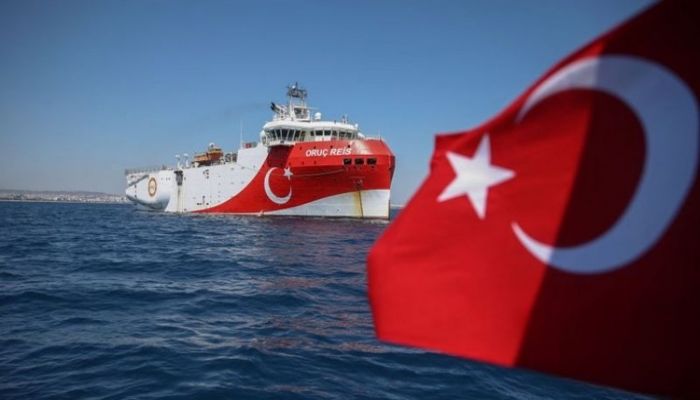
Desk Report
Publish: 02 Oct 2020, 04:04 pm

The EU says that it could place sanctions on Turkey on 'provocations and pressures' in a row with Greece on energy resources and maritime borders.
European Commission President Ursula von der Leyen called on Ankara to "abstain unilateral action" in the eastern Mediterranean.
She spoke early on Friday at a meeting of EU leaders in Brussels, BBC reports.
Earlier, Turkey and Greece set up a military hotline to try to minimize the possibility of conflicts in the area.
Tensions grew earlier this year when Turkey sent a ship to the disputed region to search for potentially rich oil and gas deposits.
What has the EU said?
Mrs von der Leyen told reporters that the EU wanted "a positive and constructive relationship with Turkey and this would also be very much in Ankara's interest".
"But it will only work if the provocations and pressures stop," she said. "We, therefore, expect that Turkey from now on abstains from unilateral actions. In case of such renewed actions by Ankara the EU will use all its instruments and options available. We have a toolbox that we can apply immediately."
After their late-night meeting, EU representatives decided to revisit Turkey's actions in December and to impose penalties if "provocations" had not stopped.
Austrian Chancellor Sebastian Kurz, posted on Twitter after the conference, said: "The EU is placing a strong threat of sanctions against Turkey if it continues to breach international law."
President of the European Council, Charles Michel, said that the EU offered Turkey stronger ties on trade and other issues but threatened sanctions if tensions in the Mediterranean did not de-escalate.
What's the background to that?
The European Union and Turkey have had a fragile relationship for a long time
Turkey has been a long-term nominee for EU membership, but attempts have stalled. EU leaders have criticized Turkey's record on human rights and the rule of law, especially following the failed military coup in 2016.
In spite of the stresses, Turkey remains a significant companion for the EU. Turkey is hosting millions of migrants and has reached an agreement with the EU that restricts the number of migrants arriving in Greece.
Both Greece and Turkey are NATO members, but they have a history of border dispute and competing claims to maritime rights.
Tensions exploded in August when Ankara sent a research ship to the area south of the Greek island of Kastellorizo, which is claimed by Greece, Turkey and Cyprus.
Greece called the move a "new serious escalation" and the EU backed Cyprus and Greece against Turkey.
Tensions eased somewhat when the research ship returned to Turkish waters last month, and both sides said they were ready to resume talks.
Why the military hotline?
The announcement of the hotline on Thursday followed talks between Turkey and Greece at the Nato headquarters in Brussels.
"I welcome the establishment of a military de-confliction mechanism, achieved through the constructive engagement of Greece and Turkey, both valued Nato allies," said Nato Secretary-General Jens Stoltenberg.
"This safety mechanism can help to create the space for diplomatic efforts to address the underlying dispute and we stand ready to develop it further."
These structures allow for direct communication between the two sides. Russia and the United States set up one during the Cold War, and it has been in use since then.
Last month, France – which is also in conflict with Turkey over the Libyan crisis – deployed two Rafale fighter jets and a naval frigate in the Eastern Mediterranean because of the friction between Greece and Turkey.
Subscribe Shampratik Deshkal Youtube Channel
© 2024 Shampratik Deshkal All Rights Reserved. Design & Developed By Root Soft Bangladesh